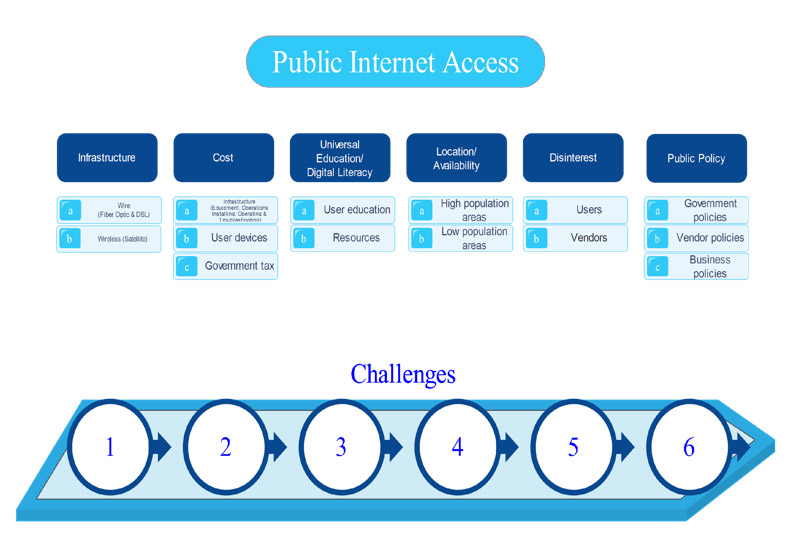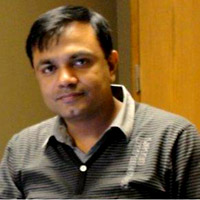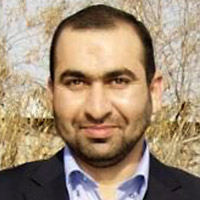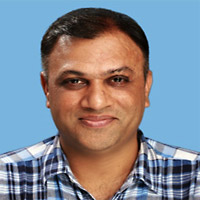Options and Challenges in Providing Universal Access to the Internet: Part Two
by Helen Anne Hicks (North Park University), Rajesh Nighot (IEEE), Nagender Aneja (Universiti Brunei Darussalam), Mohammed Aledhari (Western Michigan University), Ali Kashif Bashir (Senior Member, IEEE) and Jared Bielby (IEEE)
IEEE Internet Initiative eNewsletter, January 2017
In many regions around the world, Internet access is quickly becoming an essential public utility alongside water, electricity, and natural gas, and while certain regions thrive where Internet access is assumed, four billion people remain deprived of basic Internet facilities. The IEEE Experts in Technology and Policy (ETAP) working group, under the umbrella of IEEE’s Collabratec Internet Technology Policy Community, have identified six critical challenges for addressing global equitable Internet access. In part one, the working group presented the first three challenges, those being infrastructure, cost, and digital literacy. The current article addresses three additional issues; location/availability, disinterest, and public policy.

Fig 1: Public Internet Access Challenges
- Location/Availability. Certain remotely located regions around the world pose unique and difficult challenges towards establishing Internet access. One of the most pressing issues that needs to be addressed is the application of unique and innovative technologies and trending business models that are better suited to providing solutions to the unique challenges presented by most remote locations. Basic resources required for connectivity such as access to electricity are often lacking, eliminating any solution to Internet access before adequate technologies can even be considered. An exploration of renewable energy sources in these scenarios may serve as viable alternatives to established infrastructure requirements.
Once a viable infrastructure is determined, based on the example of Internet-rich countries, further participating entities, including ISPs, may appear and business will flourish. This growth could reinforce better quality, lower rates, and raise the potential for citizens of the global community to access the Internet. In the same way that those countries that once benefitted from the well-dispersed infrastructure of 3G were also the ones who first switched to 4G and are now moving to 5G, so too could an iterative application of infrastructure benefit developing regions. Korea and Japan are good examples of this iterative process and are currently among the best Internet service providers in the world in terms of offering both reasonable rates and extensive access.
As noted, 4 billion people around the world are deprived of Internet access and 31% who do have access don’t even have 3G coverage. By exploring and providing innovative solutions towards the installation of the necessary infrastructure or by using existing infrastructures to propagate signals to disconnected and isolated regions, many of these discrepancies can be addressed. Innovative solutions thus far explored include, for example, the tuning of satellite transmission systems to catch Internet frequencies that connect remote villages to the global network, as well as the exploitation of power-lines to provide multi-gigabit wireless broadband.
- Disinterest. Although it is often uncritically assumed that everyone should desire access to the Internet, there remains a sample of the global population who choose not to access the Internet. Evidence cited above illustrates that providing access to the Internet is a positive and valuable means to promoting community health, education, and business, but it would not be prudent to assume that such benefits apply universally to all global citizens. Commonly accepted values should not be forced on any particular population or individual. While sociological and psychological factors are not part of this study on providing universal access to the Internet, one should acknowledge recent studies that account for information pathologies due to conditions of digital exposure and saturation. The reasons for renouncing Internet access are valid and should be respected. Digital advocacy, associated with education, can be a solution for reaching some non-users. There are several additional factors that may contribute to addressing concerns of non-interest in access to the valuable resources offered by the Internet. Lack of interest may be further broken down into lack of value return, lack of local content, non-awareness of the advantages of mobile payments, e-governance, e-commerce, and social acceptance. Content and service providers should innovate on services that can improve quality of life, thus providing viable reasons to be online. Social networking and online communication, while also problematic, have been observed as a major incentive toward encouraging digital citizenship. It is possible that innovation, advocacy, and incentive in terms of content and services can increase the number of Internet users.
- Public Policy. Does each country’s government encourage access to the Internet for all citizens? Or are there some countries where the public policy, either at the federal level or the local level, may in fact prohibit or limit universal access to the Internet based on technological or legislative issues? Limited access to the Internet due to legislative issues may block social developments with respect to global standards. The advantages of advocating Internet access are outweighing the disadvantages and therefore public policy supporting quality Internet access at affordable rates will benefit individual nations in promoting global digital citizenship. There is a need for the creation of a National Universal Access Policy from National Governments in addition to the building of a publicly funded infrastructure for accessing the Internet assisted by National Governments and the World Bank. Such infrastructure may be made available to licenses and other operators for an “Internet for All.” Many governments around the world are in the process of setting up ambitious projects to invest heavily in providing public Wi-Fi.
All six of the above options and challenges (from both part one and part two of this article) must be addressed individually and integrally before the reality of Internet access for all can be realized. Through the combined efforts of policy makers and technologists, ingenious thinking practices such as the solutions mentioned above will lead the way to fast, efficient, and cost-effective approaches for providing universal Internet access. IEEE’s Internet Technology Policy community hopes to contribute to this effort through sound Internet technology policy practices and endeavors to lead the way towards providing universal Internet access to all global citizens. Due for publication in early 2017, the Internet Technology Policy community has submitted the final results of their research to the Internet Initiative in the form of an extensive, collaboratively-authored white paper that addresses the above six issues in further detail.
References:
- Hicks, R. Nighot, N. Aneja, M. Aledhari, A.K. Bashir, and J. Bielby, “Options and Challenges in Providing Universal Access to the Internet: Part One” http://internetinitiative.ieee.org/newsletter/november-2016/options-and-challenges-in-providing-universal-access-to-the-internet-part-1
- Media Literacy Education in China By Chi-Kim Cheung, Springer Publication, 2016
- Livingstone, Sonia, Magdalena Bober, and Ellen Helsper. "Internet literacy among children and young people: Findings from the UK Children Go Online Project." (2005).
 Helen Anne Hicks
Helen Anne Hicks
Born and raised in Chicago, Helen earned a B.S. and an M.B.A. from the University of Illinois at Chicago. She is currently an adjunct professor at North Park University in Chicago. Helen has traveled to Nicaragua twice with an American NGO, where she helped install off-grid solar electricity in two rural villages that were too far from the traditional infrastructure. Her ongoing doctoral dissertation from Walden University (expected 2017) deals with the topic of bringing the internet to rural areas in Central America using off-grid renewable energy sources to first bring electricity to these rural villages.
 Rajesh Nighot
Rajesh Nighot
Rajesh has earned a B.E degree in Electronics and Power Engineering from the National Institute of Technology-Nagpur, India and a M.S degree from the University of Saskatchewan, Canada. In the last 19 years he has provided engineering services to private and Government organizations in Australia, Canada, New Zealand, Philippines, India and USA. He is currently providing specialized engineering services for power generation project at the world’s largest petrochemical complex in Gujarat, India. From 2009 to 2010, he undertook research in tharea of public policy for electricity sector at the Auckland University of Technology.
 Nagender Aneja
Nagender Aneja
Nagender earned M.Engg. in Computer Tech. and Applications from Delhi College of Engineering and is a PhD Scholar at YMCA University of Science and Technology, India. He is currently Senior Manager at Innovation and Enterprise Office, Universiti Brunei Darussalam. Nagender's android app based on peer-to-peer networking, OffAT-Chat in Airplane mode, recently won Brunei ICT Awards 2016 to represent Brunei in Asia Pacific ICT Alliance Awards, Taiwan. His ongoing doctoral work is in area of ad-hoc social networking without using any centralized infrastructure.
 Mohammed Aledhari
Mohammed Aledhari
Mohammed Aledhari received the B.S. degree in computer science from the University of Anbar, Anbar, Iraq, in 2003 and the M.S. degree in computer science from the University of Basra, Basra, Iraq, in 2010. He is currently working toward the Ph.D. degree at the Department of Computer Science, Western Michigan University, Kalamazoo, MI, USA. He is currently a Doctoral Associate at the Center for High Performance Computing and Big Data, Western Michigan University. He also served as a Software Engineer Team Lead at the Iraqi Drilling Company (IDC) from January 2005 - August 2011. His current research interests include Internet of Things, Big Data, Machine Learning, Networks, Cloud Computing, Microcontrollers and Robots.
 Dr. Ali Kashif Bashir
Dr. Ali Kashif Bashir
Dr. Ali Kashif Bashir received his Ph.D. in Computer Science and Engineering from Korea University, South Korea. He is currently working for Graduate School of Information Science and Technology, Osaka University. Dr. Ali is a senior member of IEEE and an active member of ACM and IEICE. He has given several invited and keynote talks and is a reviewer of top journals and conferences. His research interests include: cloud computing (NFV/SDN), network virtualization, IoT, network security, wireless networks, etc. He is also serving IEEE Internet Technology Policy eNewsletter as editor in chief.
 Jared Bielby
Jared Bielby
Jared Bielby received a double master's degree at the University of Alberta, Canada in information science and digital humanities with a thesis route in the field of information ethics. He works as an independent consultant in information ethics and internet governance. He currently serves as co-chair for the International Center for Information Ethics and editor for the International Review of Information Ethics. He is moderator and content writer for the Institute of Electrical and Electronics Engineers' (IEEE) Collabratec Internet Technology Policy Forum (IEEE-ITP) and is founder and editor-in-chief of The Freelance Netizen.
Editor:
 Dr. Tahir Hameed
Dr. Tahir Hameed
Dr. Tahir Hameed has been associated with SolBridge International School of Business in South Korea since 2012. He teaches courses related to information systems and technology management at the masters and bachelors levels. Prior to joining SolBridge, Dr. Hameed obtained his Ph.D. in Information Technology Management from the Korea Advanced Institute of Science and Technology (KAIST), and obtained his Masters in Computer Science from Lahore University of Management Sciences (LUMS). His research interests include the areas of information technology standards, innovation, IT policy, information systems adoption, and knowledge management. He has published extensively in prestigious journals such as Telecommunications Policy, Technological Forecasting and Social Change, World Development, and Journal of Knowledge Management. He has presented several papers at leading conferences including IEEE conference on Industrial Engineering and Engineering Management and Australasian Conference on Information Systems. Dr. Hameed’s current research focus is in the areas of health informatics, knowledge management systems, educational information technology, and technology commercialization. He can be reached at tahir@solbridge.ac.kr.
Article Contributions Welcomed
If you wish to have an internet policy related article considered for publication, please contact the Managing Editor of Technology Policy and Ethics IEEE Future Directions Newsletter.
Past Issues
IEEE Internet Policy Newsletter Editorial Board
Dr. Ali Kashif Bashir, Interim Editor-in- Chief
Dr. Syed Hassan Ahmed
Dr. Mudassar Ahmad
Dr. Onur Alparslan
Dr. Muhammad Bilal
Dr. Syed Ahmad Chan Bukhari
Dr. Ankur Chattopadhyay
Dr. Junaid Chaudhry
Dr. Waleed Ejaz
Dr. Yasir Faheem
Dr. Prasun Ghosal
Dr. Tahir Hameed
Dr. Y. Sinan Hanay
Dr. Shagufta Henna
Dr. Fatima Hussain
Dr. Rasheed Hussain
Dr. Saman Iftikhar
Dr. Stephan Jones
Dr. Mohammad Saud Khan
Olga Kiconco
Dr. Jay Ramesh Merja
Dr. Mubashir Husain Rehmani
Dr. Hafiz Maher Ali Zeeshan
About: This newsletter features technical, policy, social, governmental, but not political commentary related to the internet. Its contents reflect the viewpoints of the authors and do not necessarily reflect the positions and views of IEEE. It is published by the IEEE Internet Initiative to enhance knowledge and promote discussion of the issues addressed.


